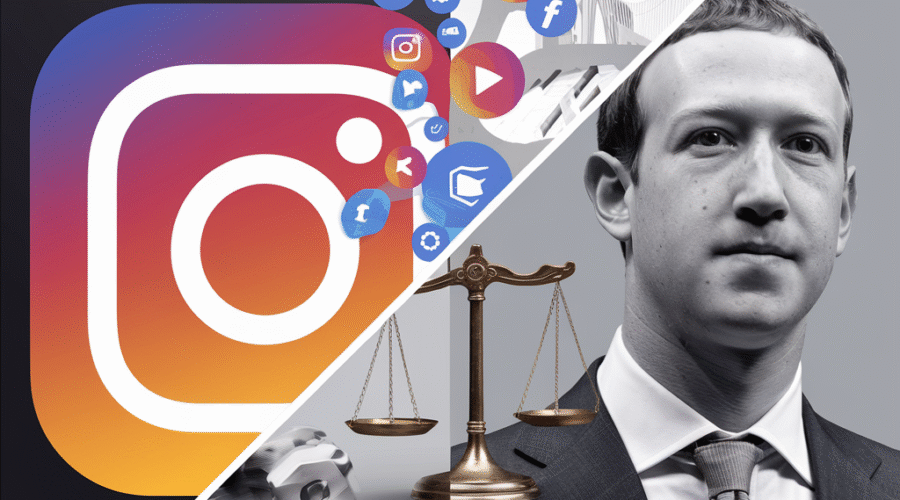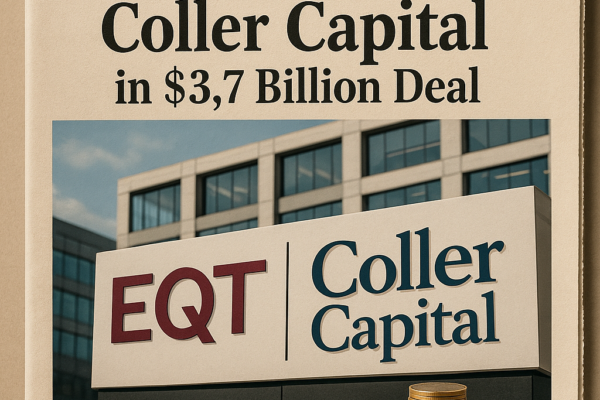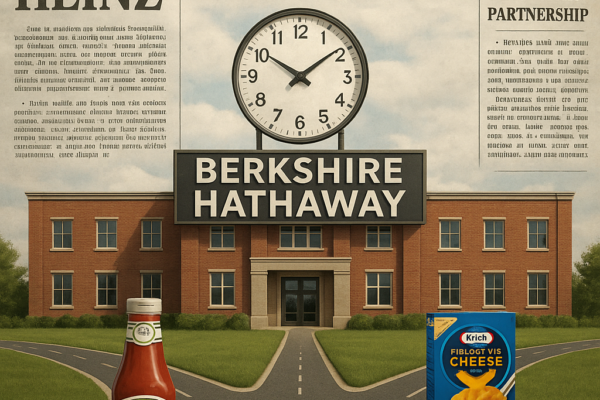In a Washington D.C. courtroom that has become ground zero for Big Tech accountability, former Instagram CEO Kevin Systrom delivered explosive testimony this week alleging that Meta CEO Mark Zuckerberg systematically starved the photo-sharing app of resources to protect Facebook’s dominance. The revelations came during the Federal Trade Commission’s landmark antitrust case seeking to unwind Meta’s $1 billion Instagram acquisition – a deal now viewed as pivotal in shaping the modern social media landscape. As regulators argue Meta engaged in a “buy-or-bury” strategy, the trial exposes fundamental tensions between startup innovation and corporate consolidation that continue reshaping tech M&A strategies.
The FTC’s Structural Case Against Meta’s Acquisition Playbook
Regulatory Framework for Digital Era Antitrust
The FTC’s case represents the most significant test of updated antitrust theories applying traditional monopoly frameworks to platform economies. At its core, the government alleges Meta violated Section 2 of the Sherman Act by acquiring Instagram in 2012 and WhatsApp in 2014 not to enhance competition, but to eliminate nascent threats to Facebook’s social media dominance[6][7]. This “kill zone” strategy allegedly allowed Meta to maintain monopoly power in personal social networking, defined as platforms where users interact with known connections.
Instagram’s Trajectory as Prosecutorial Centerpiece
Internal Meta documents revealed during testimony show Instagram’s user base grew from 25,000 on launch day to 4 million monthly active users by January 2012 – growth that Systrom described as “exponential, unstoppable” without Meta’s infrastructure[7]. Yet FTC economists argue Instagram’s pre-acquisition trajectory suggests it could have evolved into an independent competitor, citing the app’s viral adoption prior to Facebook integration[1][6]. This counterfactual analysis forms the crux of the government’s harm argument – that absent acquisition, Instagram might have constrained Meta’s market power organically.
Divergent Narratives: Startup Vision vs Corporate Strategy
Systrom’s Account of Strategic Starvation
The Instagram co-founder’s testimony painted a picture of deliberate underinvestment, with Instagram operating at 1/35th of Facebook’s headcount despite driving comparable revenue growth[1][4]. Systrom revealed that during Facebook’s 2016 “pivot to video” – a strategy later revealed as flawed – Zuckerberg allocated 300 engineers to Facebook’s video team while granting Instagram zero additional resources[2][3]. This pattern extended to critical infrastructure investments; where Zuckerberg testified about providing spam filters and storage systems, Systrom countered that Instagram relied on Amazon Web Services and had spam “under control” pre-acquisition[1][7].
Zuckerberg’s Integration Defense
Meta’s legal team has emphasized the technological synergies enabled by the acquisition, presenting internal emails where Systrom praised Facebook’s sales infrastructure and engineering support[7]. During cross-examination, Meta attorneys highlighted a 2014 interview where Systrom stated Instagram needed Facebook’s resources to scale, asking pointedly: “Would you characterize that as a lie?”[7]. The defense strategy positions Instagram’s growth as validation of Meta’s value-add, arguing post-acquisition investments in Stories and Reels demonstrate commitment to the platform’s evolution[5][8].
The Resource Allocation Battleground
Headcount Disparities and Innovation Capacity
By 2018, Instagram reached 1 billion users with just 1,000 employees compared to Facebook’s 35,000 – a staffing ratio Systrom called “baffling” given Instagram’s revenue contribution[1][4]. Trial exhibits show repeated denied requests for engineers to develop video features and Stories, forcing Instagram to lag behind Snapchat’s innovation pace[3][5]. This understaffing allegedly created product development bottlenecks, with one 2017 memo warning Instagram’s feed ranking system relied on “Facebook’s deprecated algorithms”[8].
Infrastructure Dependencies and Strategic Control
While Zuckerberg testified about shared technical resources, internal communications reveal tension over infrastructure control. A 2016 architecture review shows Meta engineers blocking Instagram’s proposal to adopt Google Cloud, insisting on Facebook’s proprietary systems[8]. Systrom described this as creating artificial dependencies: “We became prisoners of their stack, unable to innovate without layers of approval”[1]. These technical constraints allegedly slowed Instagram’s ability to adopt emerging technologies like AI recommendation models later leveraged by TikTok.
Broader Market Impacts and Competitive Dynamics
The TikTok Paradox
As Meta defends its past acquisitions, the company continues adapting to new competitive threats. During the trial’s second week, Instagram launched “Edits” – a video creation tool directly targeting TikTok’s CapCut[5]. This timing underscores Meta’s ongoing platform arms race, even as regulators scrutinize previous market moves. Industry analysts note TikTok’s rise demonstrates the limitations of Meta’s acquisition strategy against fundamentally disruptive innovators[5][8].
Chilling Effects on Startup Ecosystems
Venture capital data presented by the FTC shows a 40% decline in social app funding between 2015-2020, which economists attribute to Meta’s “kill zone” reputation[6][11]. The trial has reignited debates about whether antitrust enforcement can resuscitate startup innovation. “When acquirers become predators rather than patrons, the entire ecosystem suffers,” testified UC Berkeley professor Steven Weber, citing declined early-stage valuations for social startups[11].
Legal Precedents and Future Implications
The Breakup Question
The FTC’s requested remedy – forcing Meta to divest Instagram and WhatsApp – would mark the largest corporate breakup since AT&T in 1984. Legal experts note this poses novel challenges given the platforms’ technical integration; Instagram now shares backend systems, ad infrastructure, and account management with Facebook[7][8]. During pretrial motions, Meta argued divestiture would require “years of operational disentanglement” costing billions[6].
Ripple Effects Across Big Tech
The trial’s outcome could reshape acquisition strategies industry-wide. Amazon recently cited the Meta case when pausing negotiations for AI startup Anthropic, with general counsel David Zapolsky warning of “regulatory overreach chilling pro-competitive deals”[11]. Conversely, FTC Chair Lina Khan views the case as critical for establishing digital markets’ ground rules: “When dominant firms snap up competitors, they’re not buying innovation – they’re buying time”[11].
Conclusion: Rebalancing Innovation and Regulation
The Meta trial crystallizes a fundamental tension in digital economies – how to preserve startup dynamism while allowing legitimate corporate growth. As Systrom returns to court for cross-examination, his testimony highlights the human dimension of antitrust enforcement: visionary founders versus corporate stewards. For dealmakers, the case underscores the growing importance of documenting post-acquisition investment plans and synergy roadmaps. As regulatory scrutiny intensifies, the most successful acquirers may be those who can demonstrate not just financial engineering, but technical empowerment of acquired innovators.
Sources
https://www.spokesman.com/stories/2025/apr/22/at-trial-instagram-co-founder-says-meta-denied-his/, https://www.businesstoday.in/amp/technology/news/story/instagram-co-founder-testifies-that-meta-ceo-mark-zuckerberg-stifled-instagrams-growth-to-shield-facebook-473257-2025-04-23, https://www.indiatoday.in/technology/features/story/kevin-systrom-testifies-in-meta-vs-ftc-trial-says-zuckerberg-saw-instagram-as-threat-to-facebook-2713301-2025-04-23, https://tech.slashdot.org/story/25/04/22/1711254/at-trial-instagram-co-founder-says-zuckerberg-withheld-resources-over-threat-fears, https://www.channelnews.com.au/zuckerberg-saw-instagram-as-a-threat-says-co-founder-as-meta-launches-tiktok-rival-app/, https://www.youtube.com/watch?v=lTiAwwuvjSY, https://www.thestar.com.my/tech/tech-news/2025/04/23/at-trial-instagram-co-founder-says-meta-denied-his-company-resources, https://www.socialsamosa.com/news-2/zuckerberg-feared-instagram-cannibalise-facebook-8988537, https://www.cjr.org/the_audit/audit_notes_instaflim-flam_off.php, https://www.motleyrice.com/social-media-lawsuits/meta/instagram, https://www.americanbar.org/content/dam/aba/publications/antitrust/journal/86/issue-2/new-labor-antitrust.pdf, https://www.cbsnews.com/miami/news/meta-collected-childrens-data-from-instagram-accounts-court-documents-allege/, https://btlj.org/2021/05/berkeley-technology-law-podcast-antitrust-suits-against-big-tech/





